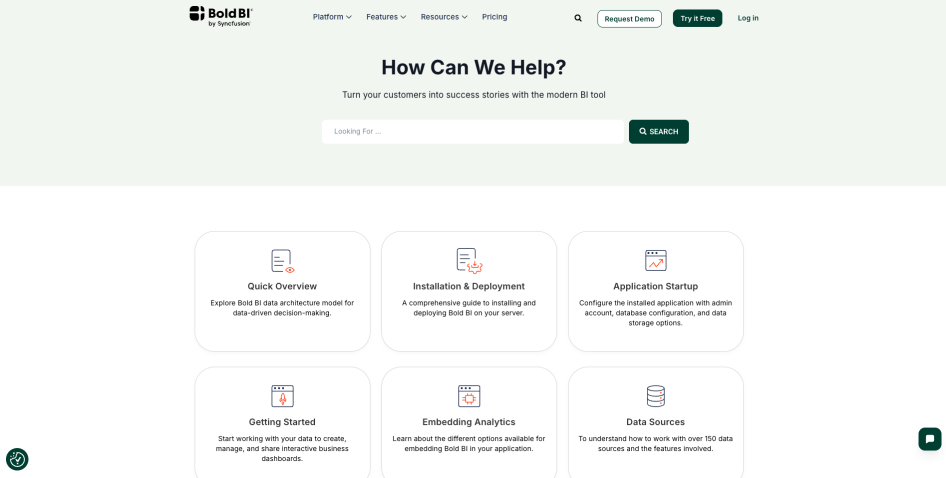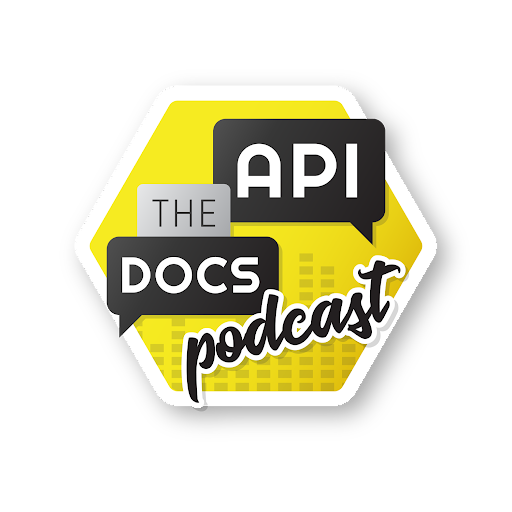
Syncfusion
NOMINEE OVERVIEW
Bold BI is embedded and AI-powered analytics software that allows its users to host analytics according to their preferences, whether on-premises or in the cloud. It enables users to build interactive dashboards from over 120+ data sources and integrate them into existing applications.
Built for security and scale, Bold BI offers multi-tenant architecture, SSO, and role-based access control. Features like real-time sharing, scheduled alerts, and export options make collaboration easy and keep teams aligned.
The Bold BI developer portal sets users up for success. With its resources in hand, they can quickly learn how to embed, customize, and manage business intelligence dashboards in their own applications. It offers step-by-step guides for working with popular frameworks like Angular, React, ASP.NET Core, ASP.NET MVC, JavaScript, and Blazor.
The portal also provides clear instructions for different deployment options. Whether an organization is hosting Bold BI in the cloud, on-premises, or using Docker, the documentation walks through the process in detail. A full REST API reference is available, with examples that show how to list dashboards, export content, and manage users and permissions programmatically.
With regard to security, the documentation covers authentication options such as OAuth 2.0, OpenID Connect, SAML, and custom providers. There are also detailed resources for setting up multi-tenant environments, role-based access, and other security features.
Bold BI works with an array of data sources, including SQL Server, Excel, Salesforce, and REST APIs. The portal explains how to connect those sources, configure them, and use them inside dashboards, letting teams go from data to insights as quickly as possible
NOMINATION RATIONALE
BEST DEVELOPER PORTAL FOR DATA PRODUCTS
How Bold BI Exposes Its Data Products
- Dashboards can be embedded directly into applications using JavaScript SDKs, iFrame embedding. This makes it easy for developers and data users to add our products to their existing applications without needing to change their tools.
- With AI-powered analytics, users can query data in natural language and instantly generate dashboards, reducing the need for manual setup. Clients can connect to numerous data sources, allowing real-time dashboards to be built from virtually any system.
- Supports cloud and on-premises deployments, ensuring data products are accessible regardless of hosting preferences.
Managing Various Data Formats Effectively
Bold BI manages different data formats by supporting 120+ sources including SQL, NoSQL, REST APIs, Excel/CSV, and cloud storage. Data can be visualized through interactive dashboards and exported in formats like Excel, PDF, and CSV. Step-by-step guides produced by our product team help users connect and work with each format, ensuring flexibility in how organizations integrate, analyze, and present their data. See one example.
Transparent Documentation on Data Reliability
Our team works hard to ensure that Bold BI’s documentation provides straightforward and clear guidance, allowing developers to accurately evaluate the platform’s suitability for their analytics needs. Regular updates and release notes also help users stay informed about changes and deprecations.
Ensuring Compliance with Regulations and Responsible Data Use
Bold BI follows key standards like GDPR, HIPAA, and SOC 2 to ensure data products are secure and compliant. The developer portal offers step-by-step guidance on safe integration, including SSO, OAuth, JWT authentication, and row-level security. Clear licensing terms explain how products can be used and shared, reducing legal risks. Bold BI also promotes responsible data practices that emphasize ethics, accuracy, and privacy. See here.




